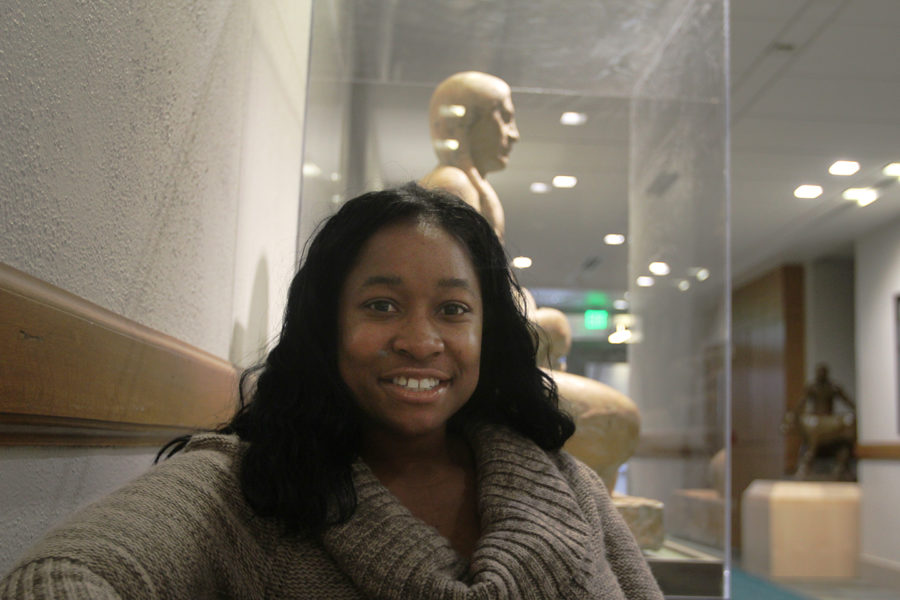Theressa Cooper becomes College of Agriculture’s new assistant dean of diversity
Theressa Cooper is the newly hired assistant dean for diversity in the College of Agriculture and Life Sciences.
February 12, 2013
The College of Agriculture and Life Sciences is looking to really delve into diversity in the upcoming future. The college recently took a large step by hiring Theressa Cooper as the new assistant dean of diversity.
Cooper hails from the University of Tennessee where she served as director of Academic Success Programs and Outreach Initiatives. Here she was responsible for the retention programs within the College of Agriculture and Natural Resources.
She earned her master’s degree in higher education doing cultural studies work while working full time. Cooper said she wanted to find a job that combined her two interests: agriculture and cultural studies.
“I was looking for a job that allowed me to still do retention work and recruiting that I was doing in [agriculture] but get an administrative piece as well because I also like doing administrative work,” Cooper said.
Cooper said a friend of hers working in the veterinary school at the University of Tennessee told her about the position at Iowa State, telling her it was the perfect job for her.
“I looked at it and it actually was because it married the administrative work on the assistant dean level but still allows me to go out in the field and do work with populations of color and retention work and still be able to write grants, which I really love to do,” Cooper said.
Cooper just recently started at Iowa State officially as of Feb. 1 and since getting here has been busy getting accustomed to her new job.
Cooper’s job as assistant dean requires a number of responsibilities including: overlooking diversity programs such as the George Washington Carver Initiative, leading the diversity efforts for the college, recruiting of undergraduate and graduate students, grant writing and possibly teaching.
“My departmental home is the agricultural education department so I’m hoping that I can maybe next spring teach some classes,” Cooper said. “If there are opportunities to submit research to different journals, we’ll do that to talk about and highlight the work that we’re doing here.”
Cooper said it is important for her to understand the environment around her before she develops a specific set of goals.
“I’m going to figure out the lay of the land,” Cooper said. “I’m going to see where the strengths and the weaknesses are in each of the programs and the recruiting and the retention, so I can see where my skill set would fit in. You don’t want to [be] necessarily changing a lot of things if things don’t need changing. I need to base my goals on evaluating and assessing.”
Dean Wendy Wintersteen of the College of Agriculture and Life Sciences explained that the college has had a longtime commitment to diversity.
Previously, Jerry Klonglan served as associate dean of the college and one of his responsibilities was to help build on programs focusing on diversity.
Mary DeBaca, who helped Klonglan, Wintersteen said, was the director of diversity within the College of Agriculture and Life Sciences. However, both she and Klonglan have since retired.
“We decided we should take this up a step and have an individual with a higher title and more visibility,” Wintersteen said. “It’s about reaching out and increasing diversity because diversity brings strength, different ideas, different viewpoints and different ideas brings in innovation.”

















